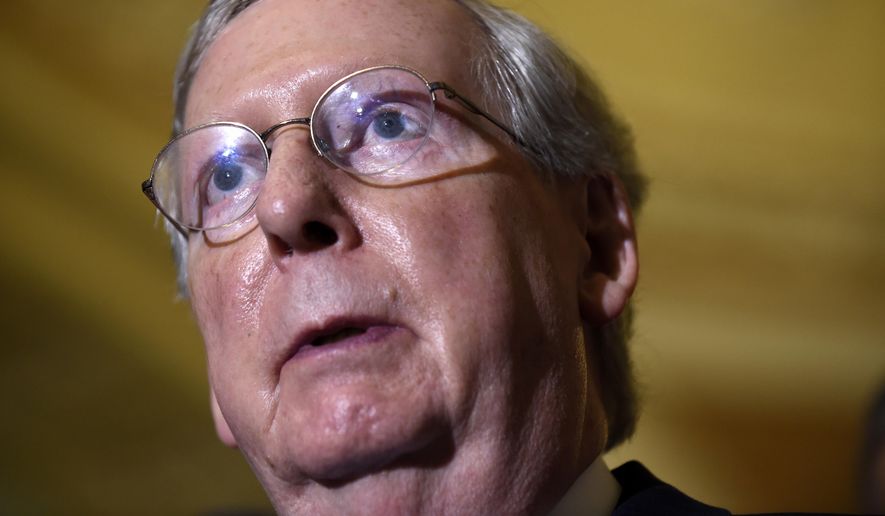OPINION:
Senate Republican Leader Mitch McConnell, whose rage at Democrats for the way they ran the Senate when they were the majority, is using some of their tactics to push a six-year highway bill through the Senate. Revisiting the highway funding debate must make senators believe they’re caught in a remake of “Groundhog Day” because they’ve had to pass some 60 short-term extensions in recent years. Mr. McConnell wants to end that, pass a multiyear bill and move on.
When a legislative leader decides he wants a bill regardless of what has to be done to get it, things tend to get out of hand. Must-pass legislation usually ends up looking like an over-decorated Christmas tree as senators tack on amendments to stop things they don’t like (Planned Parenthood funding) or that others want (reauthorization of the Export-Import Bank).
Mr. McConnell’s allies include California’s Barbara Boxer and Illinois’ Dick Durbin. Opponents include Ohio’s Rob Portman and, surprisingly, New York’s liberal dealmaker Chuck Schumer. The White House is said to oppose the McConnell plan, hoping instead that the Senate will go along with a five-month $8 billion extension that the House has already passed and which has the outspoken support of House Ways and Means Chairman Paul Ryan.
Motives here are important. The Obama administration seems to believe that a short-term extension will allow Democrats to get more money out of Congress. And Mssrs. Ryan, Schumer and Portman want to use the time they would gain via the short-term fix to pass legislation that would reform the way the government taxes money earned by U.S. companies abroad — two trillion dollars of which these companies are reluctant to bring home because when they do it will be taxed at the 35 percent domestic corporate tax rate. They would impose a much lower transition rate to allow the repatriation of this money even as they work for longer-term reform. They believe that revenues thus produced could be used to fund a longer-term highway bill without resorting to increasing the gasoline tax or cooking the books.
They believe Mr. McConnell and his allies are cooking the books and raising taxes that the senator calls “fees” — in a search for the funds needed to pay for the six-year extension. Much of what Mr. McConnell is counting on would come from the sale of oil held in the country’s Strategic Petroleum Reserve. Given that the country is awash in oil these days, it’s not the sale that bothers many critics as much as the funds Mr. McConnell says such a sale would produce.
His plan depends on the ability to sell oil off at about $89 a barrel, but yesterday you could buy all the oil you want at $63 a barrel and, according to most projections, that price is due to fall as Iranian crude re-enters the market. The funding mechanism also includes a mishmash of other assorted fees charged by banks and airlines.
And that’s not all. The Senate plan also allows private companies an additional four years before they will have to transfer general treasury funds to troubled pension and health plans. Companies will be paying taxes on those funds during the interim and Mr. McConnell would use the revenues to “pay for” his extension.
In comic irony, as the Republican leader hustled to force his 1,030 page extension through the Senate, a straight-faced Sen. Harry Reid told reporters, “We have a few rules that we follow one is that we should actually be able to see the bill and read it and discuss it before we’re asked to vote on it.”
Maybe Mr. McConnell sees merit in the high-handed way Mr. Reid acted when he was in charge and Democrats railroaded Obamacare through without letting anyone see or read it. So far he hasn’t told his colleagues they’ll have to pass the bill to see what’s in it. But the season is young.




Please read our comment policy before commenting.